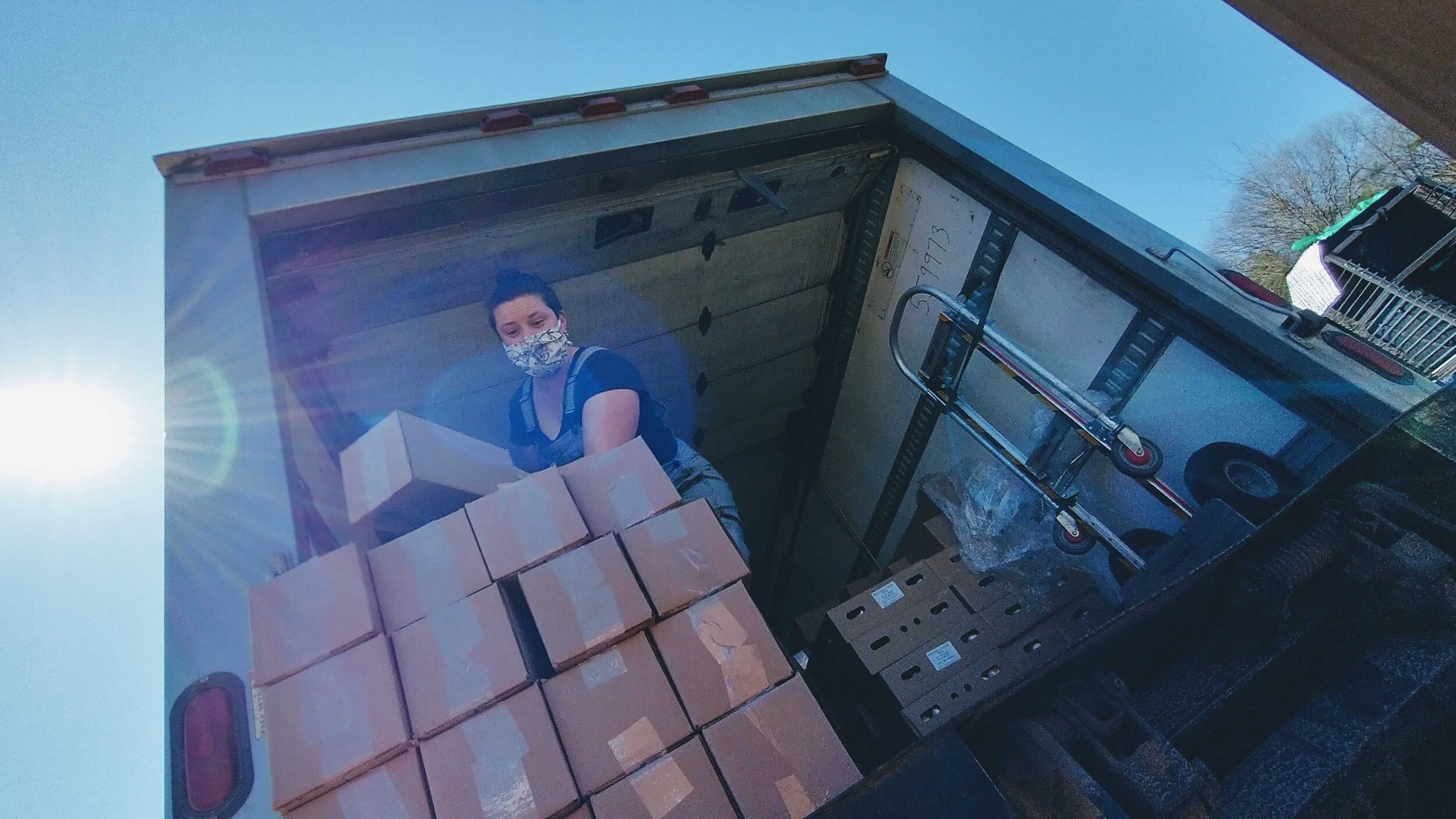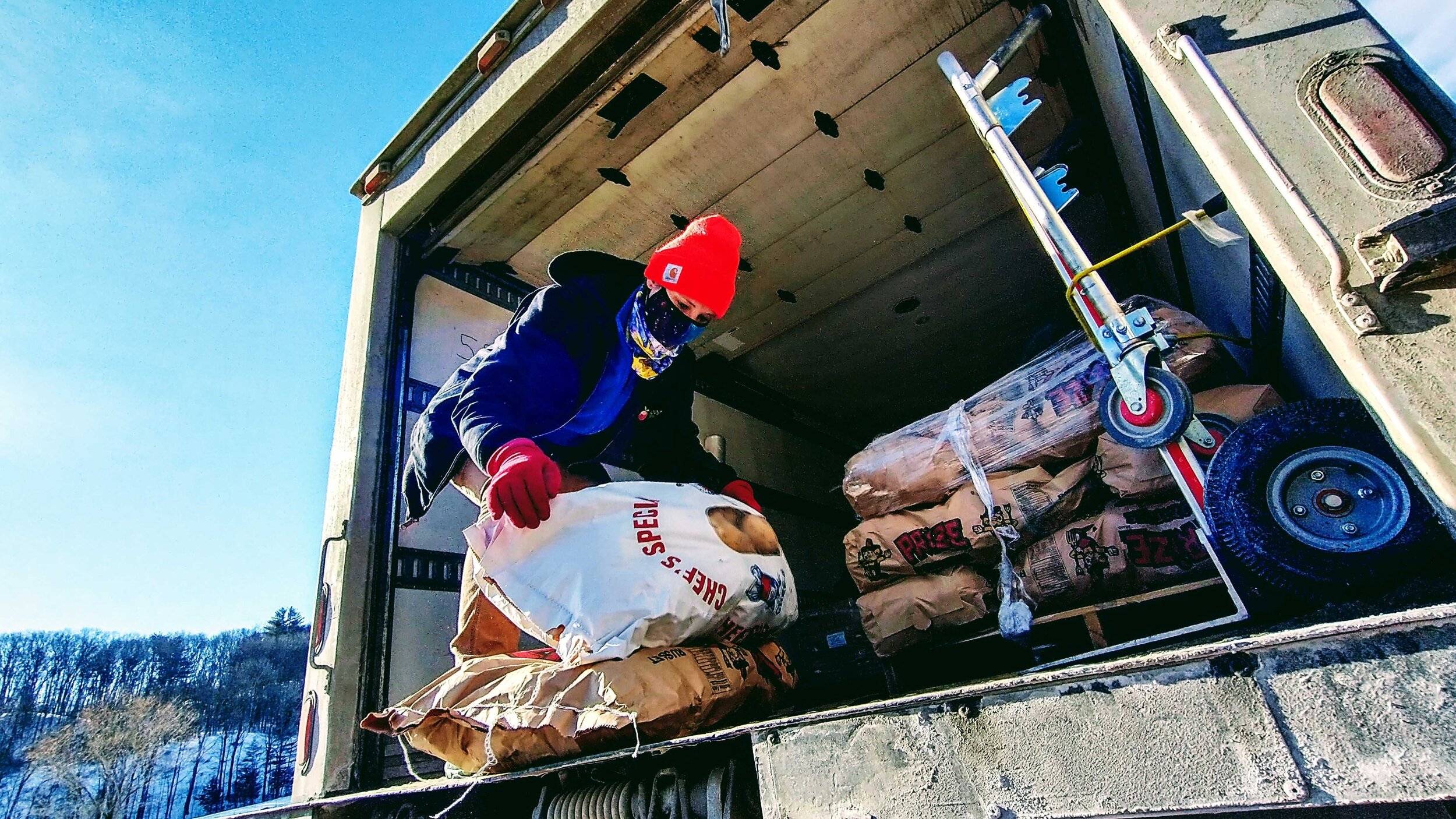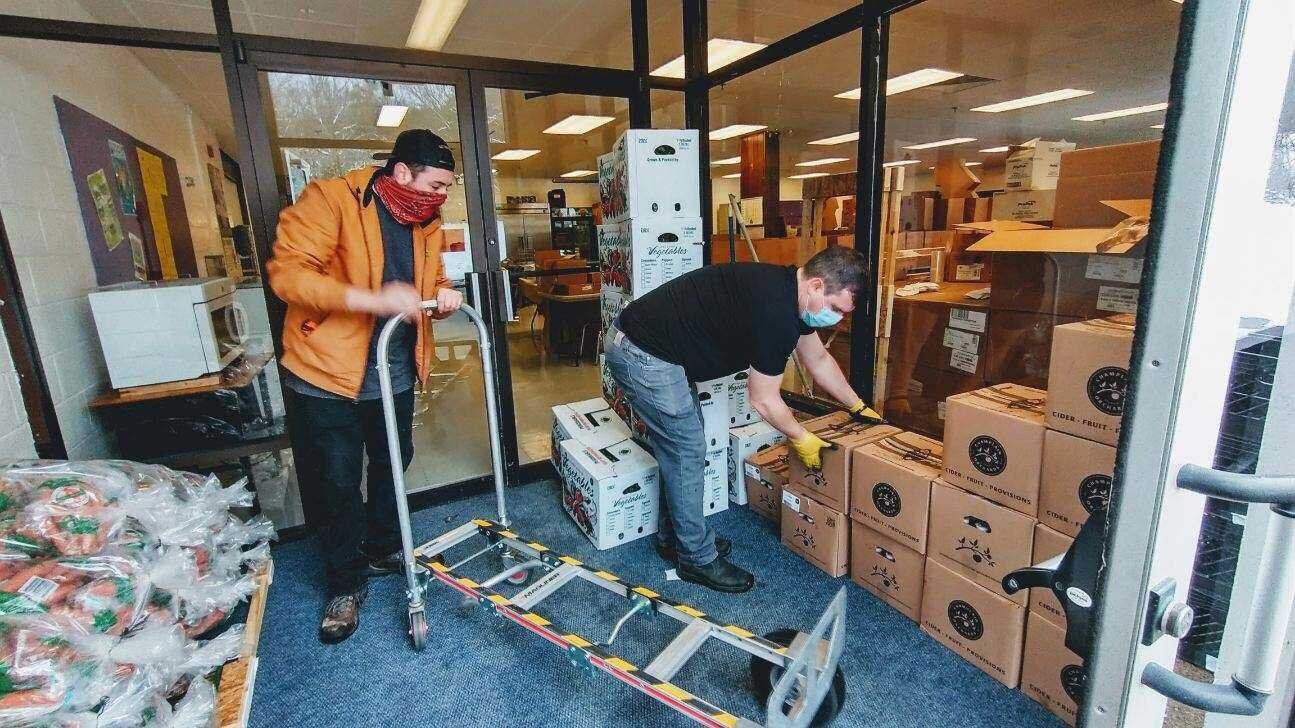If you know anything about food distribution, you know drivers are absolutely critical to the operation. At Food Connects, our Food Hub drivers are our front-line workers—picking up from the people who make and grow our food and delivering that food to co-ops, schools, hospitals, and more. Five days a week, they are out on the road representing Food Connects and, more importantly, our values. As the people who are physically delivering New England food to New England customers, they are indispensable in achieving New England's 30-by-30 Vison. We are grateful for the critical part they play in building a better food system.
So, what is it like to work for an entrepreneurial non-profit Food Hub? And who are the drivers that make our work possible? Meet two members of our driving team, Elisa and Tracy. Their hard work and dedication over the past few years has significantly fostered and shaped the growth of our Food Hub.
Elisa and Tracy have both been with our team for quite a while and have seen us through some major transitions. Fun fact: Tracy has technically been with us for more than 5 ½ years—he worked for the Windham Farm & Food Network (WFF) (which eventually became Food Connects) while he was at Harlow Farm in Westminster, VT.
What is your professional background?
Elisa (E): I started in landscape architecture (residential in CA) and got into edible landscaping, which ultimately helped me transition into farming and urban farming.
Tracy (T): I worked for Paul Harlow, at Harlow Farm, for a while. My daughter is a farmer too—Sweetland Farm in Norwich, VT!
Are you doing other work outside of Food Connects? How do you split your time?
E: Farming takes up a lot of my time outside of Food Connects. I enjoy pickup sports like soccer, ultimate frisbee, and basketball, and also play Settlers of Catan.
T: I’m not doing other work outside of Food Connects. When I’m not driving, I like to cross-country ski and maintain.
Why did you choose Food Connects?
E: I had heard lots of good things on the street about working here. When I started working at Food Connects, I was new to the Brattleboro area. This was an opportunity to get to know people and Windham County—I got to know the roads and culture a little bit more. I also have done a lot of networking with producers and wholesale buyers for my farm.
T: My job melded from one to the other. I went to high school with Paul Harlow and was loyal to Paul and his farm. As I did more and more work for WFF, I even insisted on working for Paul in title only. But eventually, it made sense to be a member of the Food Connects team and I switched. There are good people all the way around, on the staff, on the farms, and on the receiving end.
What do you like about your job? What is hard about it?
E: The hardest part is definitely driving in the dead of winter because of the weather and New England roads—the managers are very reasonable around driving expectations in poor conditions. My favorite thing is that Food Connects is a successful nonprofit as it continues to grow and avoids mission creep—some nonprofits do go beyond their original mission and purposes, and do too much of it. Food Connects has two main enterprises (the Food Hub and our Farm to School Program) and does it better and better each passing season.
T: To reiterate Elisa, winter driving can be tough—but I never feel unsafe. I would have to say that this is probably the most social I’ve been in my entire life—connecting with all the farmers and customers through the region. I like that Food Connects can also be a resource—I can inform my daughter about interesting news and opportunities from other farms.
Have you driven for any other businesses before? If so, how is Food Connects different from a normal driving job?
E: In the past I have driven for farms going to farmers’ markets. It’s similar, but different because when you go to a farmers’ market it is very full when you go and empty when you come back. Plus that it’s just one stop versus constantly stopping to make deliveries. I drove around the San Francisco Bay area which also had a lot more, and often unpredictable, traffic. Here… it might be a cow in the middle of the road and I definitely would rather have that than urban traffic.
What would you tell a potential driver who is looking to work with us? Why should someone want to drive with Food Connects?
E: Good people and good management—the people are really genuine here. It’s also good pay for relatively easy and consistent work that’s reliable. Plus there are great systems in place and good food and discounts on it! If you live in Windham county, it’s close to downtown Brattleboro and centrally located.
T: Good people. Plain and simple.
Any fun stories to share with us about being on the road?
E: I wasn’t joking before. A literal cow crossed the road and I had to wait!
T: It can sometimes be scary with the snowstorms but I grew up around heavy equipment and respect the machinery.









